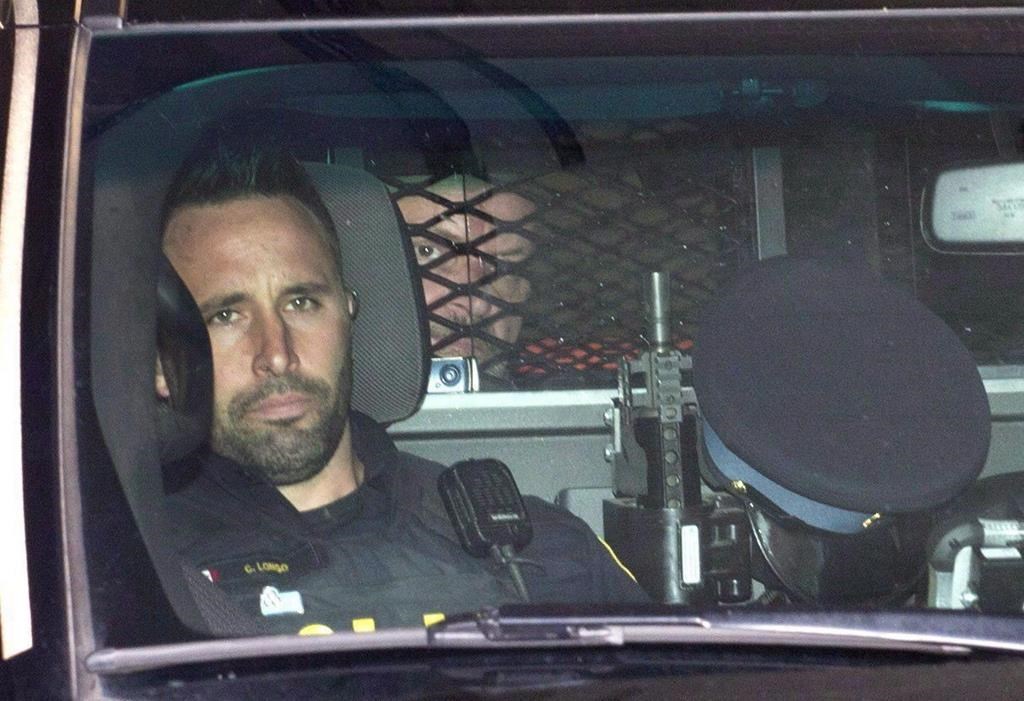The Ontario government must provide adequate funding for support services and create an independent commission dedicated to ending intimate partner violence to prevent tragedies like the triple homicide that unfolded in the Ottawa Valley in 2015, lawyers told a coroner’s inquest Friday.

Carol Culleton, Nathalie Warmerdam and Anastasia Kuzyk were killed on their properties in the Ottawa Valley on Sept. 22, 2015 by Basil Borutski, a man with a known history of violence against women.
In closing submissions, counsel and Warmerdam’s daughter Valerie laid out 72 proposed recommendations to prevent future deaths and protect victims of such violence in rural communities. They involve provincial and federal governments, Ontario’s chief firearms officer, the Office of the Chief Coroner, the Information and Privacy Commissioner of Ontario, as well as those involved in the inquest process.
They include the need for “adequate and stable” funding from the province for organizations providing intimate partner violence support services and an independent commission on the issue as well as a new approach to public education campaigns to promote awareness about the topic.
They say Ottawa should implement a national action plan on gender-based violence and consider adding the term femicide and its definition into the Criminal Code.
Inquest counsel Prabhu Rajan said the changes “must occur and must happen quickly before another generation of women have to deal with the pain and suffering” associated with intimate partner violence and femicide.
- Shooting at Rhode Island ice rink kills 2 during youth hockey game: police
- Anti-feminist ideology ‘increasingly relevant’ to national security: CSIS
- Savannah Guthrie issues new plea for mother’s return as police clear family
- Tumbler Ridge shooting fuels misinformation about trans people, organization says
“We must start when the abuser isn’t an abuser. When he’s a child, then a youth and then a young man, frankly, his parents before he’s born, we must give him off ramps for potential violence, such as counselling and a variety of supports,” said Rajan.

Get breaking National news
“I think, as a society, we placed so much responsibility on women to deal with their abuse. Shouldn’t men take, at a minimum, their share of responsibility?”
Jurors are not to assign blame for the deaths of Culleton, Kuzyk and Nathalie Warmerdam but rather examine the circumstances that led to their deaths and propose recommendations to prevent similar tragedies, said presiding officer Leslie Reaume.
Borutski began a deadly rampage across the Ottawa Valley on the morning of Sept. 22, 2015, first strangling 66-year-old Culleton to death at her cottage in Combermere. He then stole her car and drove to 36-year-old Kuzyk’s house in Wilno, where he shot her to death as her sister ran for her life.
From there, Borutski drove to 48-year-old Warmerdam’s home in Bonnechere Valley Township and shot her to death as her son fled.
In 2017, Borutski was sentenced to life in prison with no eligibility of parole for 70 years for the murders.
The inquest has heard that the perpetrator was convicted of assaulting his former partner when he was 20 years old. He continued a pattern of extreme violence with intimate partners over the following four decades.
A review of the case presented at the inquest suggests there were as many as 120 opportunities for intervention between 2010 and the 2015 triple homicide by friends, family or professionals who were involved in Borutski’s life and aware of his violent behaviour and threats.
The inquest has also revealed that Borutski was deemed to be high risk as early as the fall of 2013, was able to avoid attending a court-ordered mandatory program for abusers and the perpetrator was prohibited from possessing any firearms because of his past convictions, but was somehow able to get his hands on the shotgun he used in the deadly 2015 rampage.
Witness testimonies, meanwhile, underscored that victims of intimate partner violence in rural communities face several barriers, such as a lack of privacy and anonymity, spotty cellphone service and isolation in their communities, which can prevent them from reaching out for support.
Kirsten Mercer, counsel to End Violence Against Women Renfrew County, praised the inquest.
“I think that we’ve created a positive inquest, a constructive inquest, and an accessible and trauma-informed inquest,” she said.
Mercer thanked the five-person jury, which consists of both men and women from Renfrew County, for their part in the inquest process and said she’s looking forward to seeing their recommendations.
“We’re very much looking forward to what you have to say. We are very much ready to pass you the pens, to hear what you’ve learned and what you want, for your community, for your family, for the future,” she said.
Valerie Warmerdam agreed.
“Once we have recommendations back from you, there will still be work to be done. We’ll need follow through, we’ll need action to be taken on those recommendations and it might require public attention to get the political will to make these things happen. And we know that it will take funding, which is never something that folks want to give,” she said.
A lawyer representing the Ontario government told the jury that they should craft recommendations “that provide flexibility in their application and design” adding that the recommendations will be considered with “the careful and serious thought and consideration that they deserve.”
The inquest, which began June 6, is expected to hear the jurors’ verdict and recommendations next week.







Comments
Comments closed.
Due to the sensitive and/or legal subject matter of some of the content on globalnews.ca, we reserve the ability to disable comments from time to time.
Please see our Commenting Policy for more.